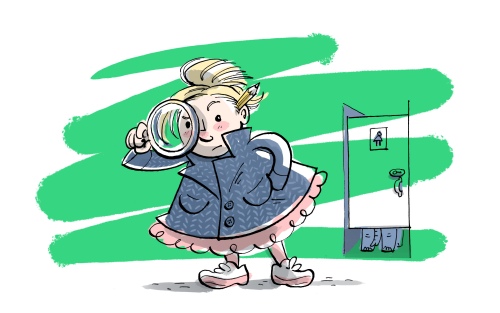It seems like a pretty vital topic, then, for writers to choose to include in their stories – to bring the reality of this topic into a children's imaginations!
That's why, this March, I'm running a weekend retreat for writers at the Welsh writing centre Ty Newydd, set in the stunningly beautiful Lleyn Peninsula.
Helping me to do this will be the poet, dramatist, climate change campaigner and performer Emily Hinshelwood.
We will be challenging writers to think about ways to expose and write about the often hidden connection between our profligate use of fossil fuels and the loss of habitat, life and lifestyle – that many in the world are already experiencing.
In our everyday lives we often don't have the opportunity or space to consider the emotions that arise in us as a response to such a nebulous and all encompassing threat as catastrophic climate change.
This threat seems both remote and near, far away in time, and yet touching the every day weather and the behaviour of plants and wildlife around us even now – as if they are early warning sensors.
We don't know how to interpret these portents and the very uncertainty around climate change and the sheer size of the fact makes us feel powerless and afraid.
Some of us go into denial, some of us are paralysed with shock and some of us are galvanised into action.
In writing for children, they mustn't be made to feel frightened or scared into shock and powerlessness, they must be helped to feel that the future does contain hope and that it is possible to do something. But there is so much to know. Where can writers start?
There is already no shortage of novels for children with the theme of climate change. Three years ago I took part in a session at the Hay-on-Wye Literature Festival where, with the author of the Carbon Diaries, Saci Lloyd, we touched on some of them.
For our pains we were accused of poisoning children's minds by the right-wing press and online trolls!
I've written something about the history of writing and climate change here.
In another project I've been involved with, Weatherfronts, an anthology of writing about climate change, some writers have addressed the question with a story set at a domestic scale rather than apocalyptic science-fiction.
Darragh Martin wrote a hilarious story for young children about fighting off a nasty polluter called 'Thumbelina Jellyfizz and the Elephant in the Bathroom'.
And what about picturing a bright future where we have solved the problems of climate change but maybe we have other problems instead?
To build a bright future we first have to envision it. Children, with their unfettered imaginations, unconstrained by preconceptions, are well able to contribute their own ideas. Writers can stimulate them to do this.
So our weekend course will discuss the many facets of climate change and the ways in which its impact is felt both by participants on the course and people throughout the world.
We will experiment with a variety of different approaches and investigate ways of tapping our emotional reactions, of using research, imagining possible scenarios, and generating meaningful stories.
We will also be using the cycle of recovery from shock and grief because we think it is directly relevant here.
We have seen people move through these psychological stages:
- shock & denial when they first hear about climate change;
- pain & guilt about the suffering that humanity has caused and is causing by the use of fossil fuels;
- anger and blame-laying;
- depression, powerlessness, reflection;
- an upward turn as one realises that life could still continue;
- reconstruction of one's life in a new way that is more sustainable, perhaps making connections with like-minded people;
- and finally acceptance and hope as they learn to deal with the new situation.
This almost sounds like a 'voyage and return' scenario or perhaps a 'conquering the monster' type of story, doesn't it?
It's going to be exciting to see what people come up with. Emily and I can't wait to see you there!
Find out more here: http://www.tynewydd.wales/course/writing-climate-change/
[I am the writer of Marvel's Captain Britain, the sci-fi YA novels Hybrids, Doc Chaos: The Chernobyl Effect and the cli-fi fantasy Stormteller. I also run a regular writing course, called 'Making Readers Care' that can be taken online. Contact me if interested.]



1 comment:
I'm neither right wing nor a troll... ( To be fair, though, I've recently been thrown out of the Facebook Friend Glee Club of well known left wing author Alan Gibbons. Dissent, basically. Too much dogma, and on-messageness. I needed a breath of fresh air.)
I've read through half of Naomi Klein's book This Changes Everything: Capitalism vs. the Climate.
As the football managers say, it's a game of two halves, and I was just so tired with the relentlessness of it that I gave up, read a review and found that she ends on a very optimistic note. As that was the view that I had started with, I concluded that perhaps I was OK with not reading the second half, or discovering all the fouls that the capitalists had committed.
There's definitely money to be made though in this 'disaster capitalism' that Ms Klein refers to. The only time I've seen her, in interview, look uncomfortable was the day Krishnan Guru-Murthy of Ch4 TV, with that big, embracing smile of his, sneaked in under the radar with something like... " But you've made millions from this, haven't you...."..
Must say, going through all the psychologies of shock, horror, grief, shame as part of what you describe does sound to me like, not indoctrination, but somewhat opportunistically manipulative. Educate, and inform, fine.
Post a Comment